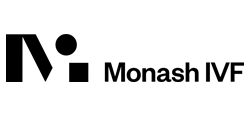Posted by RLPA
Working Group to address concussion concerns
The Australian Athletes’ Alliance (AAA) today announced that it will be taking a proactive and collaborative approach to concussion prevention and management in Australian sport.
Identifying the need for further independence and transparency in the management and research of concussion, the AAA has brought together brain injury experts and concussion advocates from Australia’s eight major Player Associations (see below) to launch its inaugural Concussion Working Group, a body established by the athletes, for the athletes.
The Working Group is led by brain injury experts Associate Professor Alan Pearce, Associate Professor Regina Crameri, Associate Professor Terry Coyne and Professor Robert Williamson and will:
- Seek to ensure there is appropriate independence and transparency in the research and management of concussion;
- Facilitate the exchange of information and development of policy;
- Provide a forum for experts to inform AAA members regarding the latest developments on concussion; and
- Ensure Australian athletes receive best practice education, preventative measures, assessment protocols, treatment regimes and support in relation to concussion, informed by the best research available and based on taking a conservative approach to protect athlete health and safety.
Chair of the AAA Concussion Working Group, CEO of the Rugby League Players’ Association and former AFL player, Ian Prendergast, said that while research on concussion continues to evolve, further steps must continue to be taken to mitigate the risks of concussion and properly support athletes impacted by the brain injury.
“There has been significant advances made in recent years. However, we must remain vigilant in exploring ways to further protect the health and safety of players, including improving assessment protocols and the support offered to athletes affected by the injury.
Based on my experience working in sport, there is also further efforts needed in terms of education and empowerment to continue shifting the culture regarding concussion to ensure athletes and support staff respect the measures in place to mitigate the impact of concussion,” he said.
The Group’s aim is to take a unified approach to addressing concussion in Sport while ensuring the delivery of adequate education support to athletes who have suffered brain injuries.
Working Group member, Associate Professor Alan Pearce, says that it’s important that we are taking a multiple modality approach to research by understanding the biomechanics of concussion, the physiological processes that occur after the impact and biomarkers to determine the extent of injury and recovery.
“We need to get to a position where all sports are utilising standardised protocols of brain injury assessment so that any medical practitioner throughout Australia is unlikely to deviate from the required tests which can then be useful for research purposes,” he said.
“Currently, we do not have enough financial support to undertake the required research here in Australia and similarly, we can’t rely on research conducted overseas as substitutes for Australian sports. The AAA’s stance on supporting independent research should be applauded and I look
forward to facilitating research and providing advice in an independent capacity to the AAA.”
AAA General Secretary, Jacob Holmes, said that while concussion was once brushed off as nothing to worry about, many athletes are now enquiring about the short and long-term consequences of multiple concussions on the human brain.
“The safety of all athletes is paramount, and with increasing athlete interest in the long-term repercussions of concussion, it’s important we’re in a position to provide well-founded and trustworthy information to all stakeholders,” he said.
“The athletes, as custodians of their sports, want to ensure the work that is done now will provide positive outcomes for the next generation of athletes. In the area of concussion we see five components as fundamental to this: education, assessment, prevention, support and research.”
The AAA bolstered its strong approach to concussion research earlier this year in partnering with the Queensland Brain Institute on the #NoBrainNoGame campaign.’
Known as the peak body for Australia’s elite professional athletes, the AAA represents more than 3,500 athletes through Australia’s eight major player associations:
- Australian Cricketers’ Association (ACA)
- Australian Football League Players’ Association (AFLPA)
- Australian Jockeys’ Association (AJA)
- Australian Netball Players’ Association (ANPA)
- Australian Basketballers’ Association (ABA)
- Professional Footballers Australia (PFA)
- Rugby League Players Association (RLPA)
- Rugby Union Players’ Association (RUPA)
Members of AAA Concussion Working Group:
- Associate Professor Alan Pearce
- Associate Professor Regina Crameri
- Professor Robert Williamson
- Associate Professor Terry Coyne
- Paul Innes – AJA CEO
- Ian Prendergast – RLPA CEO
- Ross Xenos – RUPA CEO
- Brett Murphy – AFLPA GM of Player Relations AFLPA
- Laura Sigal – AAA Deputy General Secretary and AFLPA Legal Officer
- Jacob Holmes – AAA General Secretary and CEO of ABA
- Jodie Fields – ACA Manager Female Operations and Membership





